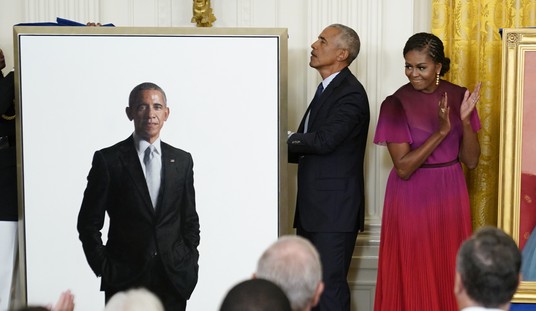When Carlos “The Jackal” Ramirez was handed a second life term by a French court, some commentators observed that young people hardly knew who he was. ‘Say Carlos Ramirez and most kids will think you’re talking about a football player’. The Jackal’s life mirrored his life and times. He began his revolutionary career as a Marxist and finished up as a radical Muslim. At every step of the way he was always in vogue.
Carlos was being sentenced for attacks which killed eleven people, but he recently boasted in an interview to have killed 1,500 in the name of Palestinian liberation. What we knew of him would never do justice to his greatness. Neverthless, he portrayed himself as deeply respectful of human life.
When asked about how many civilians lost their lives in his attacks, the Venezuelan militant said: “There were very few. I calculated that they were fewer than 10%.
“So out of 1500 – 2000 killed, there were not more than 200 civilian victims,” the Marxist-Leninist radical said.
Ever a hero to Left, he is praised by Hugo Chavez. “I defend him. It doesn’t matter to me what they say tomorrow in Europe … They accuse him of being a terrorist, but Carlos really was a revolutionary fighter … one of the great fighters of the Palestine Liberation Organization.”
The Jackal had an impeccable leftist pedigree. “The son of Left-wing millionaire Venezuelan lawyer Jose Altagracia Ramirez Navas, who named his three sons Vladimir, Ilich and Lenin after the leader of Russia’s Bolshevik revolution, Carlos was a paid-up member of the Communist party by the age of ten, and spent time as an undergraduate at Moscow’s Patrice Lumumba University, established by the Soviets as a training ground for revolutionaries from Africa, Asia and Latin America.”
As one might expect, he was — and is — irresistible to a certain kind of woman. His current wife is a French lawyer, who tirelessly defends him. He had other wives, but she hardly cares.
‘I couldn’t bring up my children, just the youngest one until the age of five or six, and I regret that.’
He was referring to Elba Rosa Ramirez Kopp, now 25. There were no more children with either his first wife, or his second, a Palestinian named Lana Jarrar. But he is believed to have fathered others secretly with a long list of lovers.
What would earn most of us a divorce only makes him more desirable. Such is the power of his celebrity that the Jackal sued a film company for a share in the box office proceeds of a film based on his life. Carlos feared film makers might portray him unflatteringly. For a man who claims he’s killed upwards of 1,500 people he is surprisingly protective of his reputation.
Ramírez, described by the spy novelist Robert Ludlum as “the most dangerous man of all times,” has been the subject of numerous books and films over the past two decades, not all of them flattering. But apparently determined to control his image even from his Paris prison cell, he has brought suit against a French production company shooting a documentary film on his life and legend, demanding a say on the final cut.
Isabelle Coutant-Peyre, the lawyer representing Ramírez, said that Ramírez is demanding that the Film in Stock production company hand over a master copy of the documentary as soon as it is finished and grant him three months to review the content and impose changes. Anything else, she said in an interview Monday, would violate his intellectual property rights to his name and “biographical image.”
It’s an amazing accomplishment for a man whose visage, honestly considered, is nothing to write home about. Frankly, Carlos looks like a toad. Moreover, he lacks the dreamy, far-away look of the Guerillero Heroico, Che Guevara. Che’s photo by Alberto Korda “has been reproduced more than any other image in photography”. Charles Manson never did as well.
But the Jackal had the self-confidence found in Abimael Guzman, the leader of the Maoist Shining Path Party of Peru, who was captured in an upper-class part of Lima, directing his campaign of assassination from a dance studio.
The house was supposedly inhabited by only one person, the dance teacher Maritza Garrido Lecca, but it was soon noticed that the household produced more garbage than one person could account for. Furthermore, agents found discarded tubes of cream for the treatment of psoriasis, an ailment that Guzmán was known to have.
Guzman was said to have an hypnotic effect upon women, who flocked to the Shining Path in extraordinary numbers. Guzman’s life and capture were even made into a movie, The Dancer Upstairs. “Adapted for the screen by Nicholas Shakespeare, from his own novel, the film is based on the hunt for Abimael Guzmán, the charismatic leader of the Shining Path terrorist group in Peru.” Not bad for a man who headed an insurgency which killed sixty nine thousand people. Here’s Mr. Charisma himself.
The enduring power of these men over popular culture, especially over the leftist segment of it, can either be dismissed as a coincidence or as a response to a deep underlying need. The literary parallel which most easily springs to mind is George du Maurier’s Svengali, a sinister character who hypnotizes women into performing onstage and makes money off them. His power is the ability to elicit certain impulses and talents from them which would otherwise be repressed. In exchange he is Svengali.
In the novel, Svengali, a middle-aged, unsuccessful musician, captured Trilby by a disguised induction, then hypno-trained her into a split personality (and a brilliant singer). Thereafter, she kept her puppetmaster, Svengali, living in luxury, supported by her concert performances. She always sang in an amnesic trance. …
Though Trilby is repelled at first by his greasy, dirty appearance and regards him as a spidery demon or incubus, she becomes completely his creature under his hypnosis….Gecko…[is] a young fiddler, small, swarthy, shabby, brown-eyed, and pock-marked; a nail-biter. Though he loves Trilby he helps Svengali train her…so that Svengali may exploit her.
Greasy, scheming, exploitative — those adjectives might not be a bad fit for Guzman or Carlos the Jackal. But if we think they are pejorative, then maybe we should think again. When Newt Gingrich called on the OWS protesters to take a bath and get a job he was entirely missing the point. A great deal of their charisma came precisely from the fact that they didn’t go home to a definite address, turn in their paycheck (what paycheck?) or mow the lawn. To do that would be boring.
They were meant to be in control.
Spengler argues that the worst possible crime of the 20th century was to be boring, to lack magic, to be deficient in exercising the combination of self-promotion, exhibitionism and intrigue that characterizes the modern winner. What sets apart the charismatics from ordinary Joes is that the Joe can do everything they do without nearly having the same degree of magic. It was this ability to be special for no special reason that defined greatness in the Red Court.
It is a commonplace that Stalin’s terror succeeded because it destroyed people at random, but promotion at random is the flip side of the coin. Severing reward from accomplishment is just as important to autocrats as separating punishment from crime. … Every dictatorship lives off a rumor mill; no-one knows who will be rewarded or punished in the next round, so the principal occupation is speculating about it. … In today’s America, rewards and punishments seem almost as arbitrary as they did in the Bourbon court. …
Nonetheless people need a success story with which to identify, and the arbitrary elevation of undistinguished individuals provides a proxy. Very few people can imagine themselves founding a biotech company that applies quantum mechanics to molecular processes, but anyone can imagine becoming a celebrity who is famous for being famous. The definitive celebrity who is famous for being famous, of course, is Barack Obama, the one-term senator from Illinois without a single accomplishment to his name — not an article in a law review, not a piece of legislation — who levered himself into the presidency.
If you can point to every dollar you’ve earned, then you haven’t earned it. That is as good a definition of Svengalism as any. The Jackal, Che Guevara, Abimael Guzman — even the fictional Svengali himself — were defined by the strength of illusion. If they accomplished things in the normal way then they wouldn’t be as extraordinary.
What they did, which was to kill thousands, had no connection to the wellsprings of their fame, which was ineffable. They were famous, as Spengler puts it, for being famous. And they would have been just as famous had they killed ten times more than they did. They were cool by definition.
And maybe we’re dying from an overdose of Leftist cool. There are many facets to the current crisis, principally economic, political and informational. But at one level the crisis is about culture; about how time has corrupted our idea of what a man should be. When the male who takes pride in his work, pays taxes, helps out in church, raises his children and scrubs the toilet is made a figure of mockery; the archetype of a bigot and discarded in favor of charismatic Marxist professors who live in dance studios directing the murder of multitudes then maybe civilization is in danger itself.
When at the end of the story Svengali dies he is missed, but not for the competence he never had, but for the lies he used to tell.
‘Svengali was the greatest artist I ever met! Monsieur, Svengali was a demon, a magician! I used to think him a god! He found me playing in the streets for copper coins, and took me by the hand, and was my only friend, and taught me all I ever knew–and yet he could not play my instrument!’
If he could, then that would have ruined everything. His dupes were looking for something else — someone to lead them by the hand; someone to tell them what to do and where to go — someone into whom they could project and entrust their hopes and fears. And what he gave them came straight from their own pockets. Now if that’s not magic, then what is?
Storming the Castle at Amazon Kindle for $3.99
No Way In at Amazon Kindle $3.99, print $9.99
Tip Jar or Subscribe for $5











Join the conversation as a VIP Member